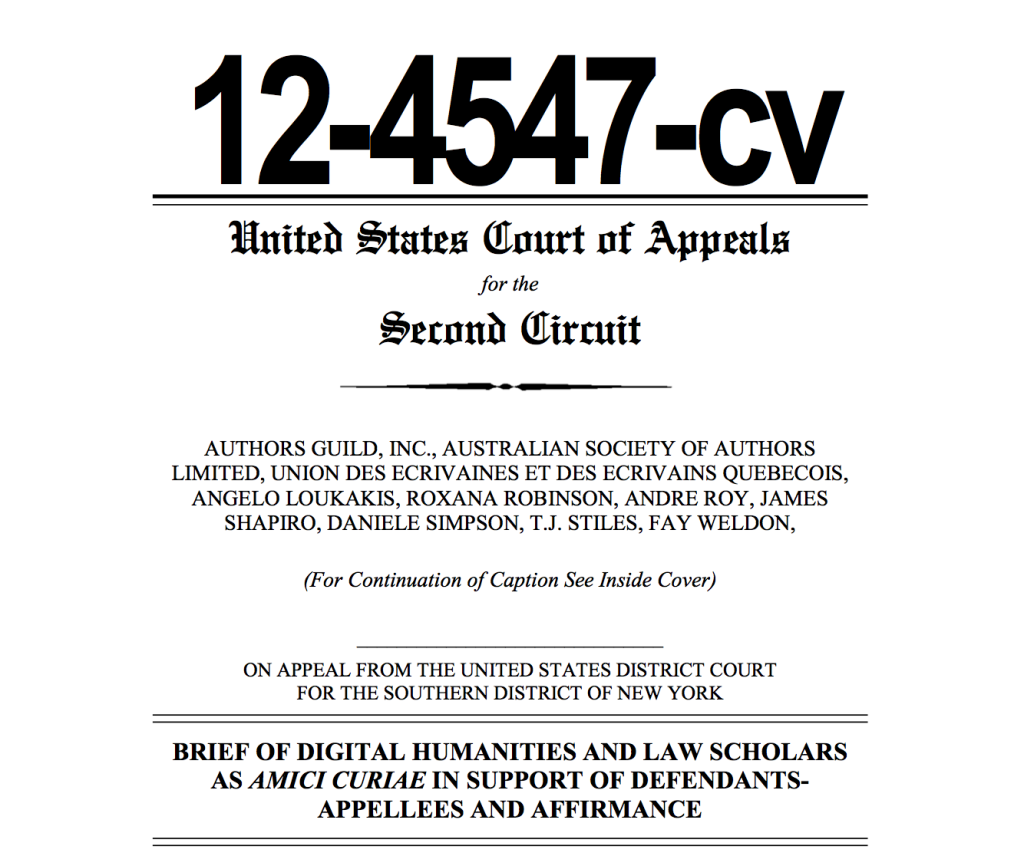I have collected all the briefs in Authors Guild v. Hathitrust for anyone who is interested.
The leading number refers to the court docket. There are some briefs in support of the plaintiffs, but the majority are in support of the defendants.
You can download the whole set as a zip file (26MG) here: AG v. Ht Appeal Briefs as filed 2013 …
Or individually from the links below:
- 54_Brief For Plaintiffs-Appellants
- 66_Brief For Amicus Curiae The Associated Press in Support of Neither Party
- 71_Brief For Amicus Curiae American Society of Journalists And Authors, Inc. in Support of Plaintiffs-Appellants
- 72_Redacted Brief For Intervenor Defendants-Appellees
- 92_Brief of Amicus Curiae Motion Picture Association of America, Inc. in Support of Plaintiffs-Appellants
- 107_Redacted Brief For Defendants-Appellees
- 132_Brief Amici Curiae of American Library Association
- 135_Brief Amici Curiae of Beneficent Technology, Inc. And Learning Ally, Inc. in Support of Affirmance
- 138_Brief of Amici Curiae American Association of People With Disabilities, American Council of The Blind, American Foundation For The Blind
- 139_Brief of Amicus Curiae The Leland Stanford Junior University in Support of Affirmance
- 145_Brief of Amici Curiae Disability Law Professors in Support of Intervenor National Federation of The Blind
- 146_Brief Amici Curiae of Beneficent Technology, Inc. And Learning Ally, Inc.
- 151_Brief of Amici Curiae Higher Education Associations
- 152_Brief For Amici Curiae Universities 158_Brief For The Electronic Frontier Foundation, Public Knowledge, And The Center For Democracy & Technology
- 159_Brief of Digital Humanities And Law Scholars as Amici Curiae in Support of Defendants- Appellees And Affirmance
- 160_Brief Amici Curiae of 133 Academic Authors in Support of Defendants-Appellees And Affirmance
- 163_Brief of Amicus Curiae Medical Historians
- 164_Amicus Brief For Emory Vaccine Center
- 165_Brief For Amici Curiae Association on Higher Education And Disability

